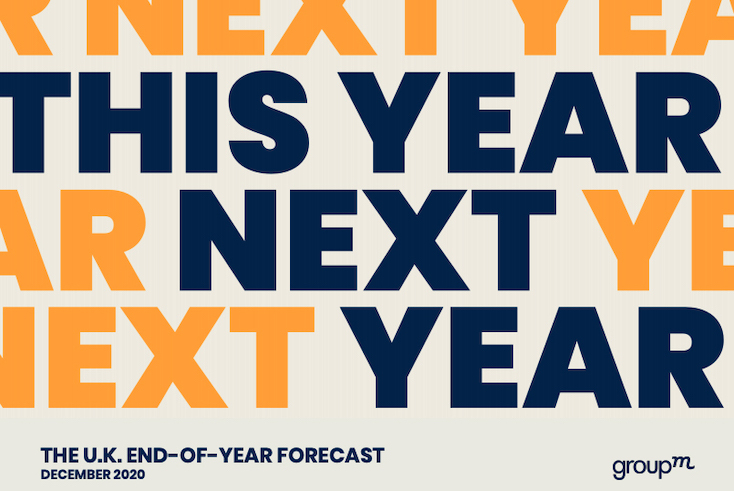GroupM’s verdict on 2020: ‘Not as bad as we originally thought’


GroupM has revised its forecast over the decline of the UK advertising market, believing it will shrink by 4.4% this year, as opposed to the 12.5% first predicted back in June.
In its ‘This year, next year’ end-of-year report, Britain’s biggest media buyer cited the resilience of marketers both large and small as reason for its upgraded forecast.
“One of the “bright spots” of advertising in 2020 has been in digital,” the report stated. “We estimate that pure-play digital advertising will grow by 4.9% during 2020, following 2019’s 16% rate of growth. Next year should see additional growth of around 12%, tapering off toward 7% after 2021. While this year’s gains look strong in comparison to the rest of the industry, it reflects significant deceleration versus prior years.
“Additionally, e-commerce growth in the U.K. has seen accelerated growth—53%—economy-wide during the third quarter. We anticipate that e-commerce-related advertising will continue to experience rapid growth, rising around 50% this year and 66% next year, reaching £2.4 billion in media owner ad revenue by 2024.”
In television, GroupM admitted that 2020 will end better than it first anticipated, with a fall of 10%. In 2021, TV advertising is expected to rise by 10% with revenues returning to 2019 levels by 2022.
GroupM also expects print media to be down 23% this year, with an anticipated rebound of 13% in 2021; OOH to see a decline of 45% this year, with expansion of 31% next year, due in part to digital formats; cinema to bounce-back to 52% of pre-pandemic advertising spend in 2021, as studios seek to monetise their backlogs with a surge of highly anticipated launches; and audio to fall by 16% in 2020, with expected growth of almost 12% in 2021.
GroupM goes on to warn, that the macroeconomic impact of Brexit will cause some disruption in the early part of 2021, although it believes it may be limited to ‘a shift in spending away from the first quarter rather than meaningful full-year cuts.’
“More generally, we continue to assume that “normal” activity will return by the second half of the year, which pre-supposes that Brexit will not cause ongoing problems and that an effective vaccine will be widely distributed across the population,” the report concluded.
